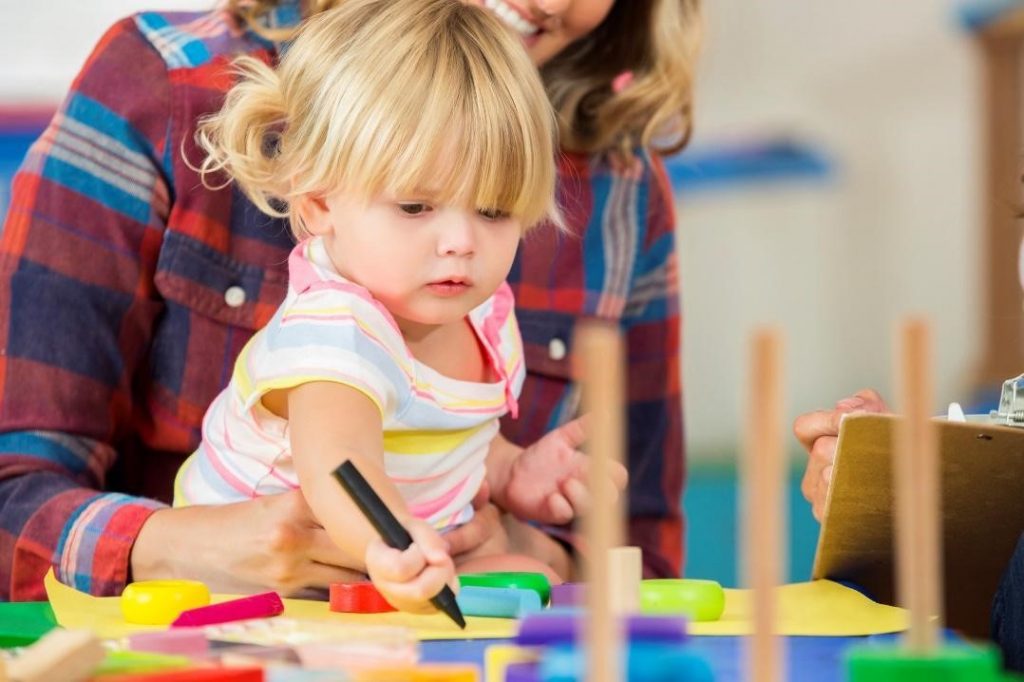Young children can learn the basics of writing well before they’re able to write by learning related skill sets
Learning new skills happens through a series of gradual steps. Writing is no different; acquiring the knowledge to master this skill requires several smaller related abilities which will make the overall act of writing possible.
So, while a young child may not be at an age that is developmentally appropriate for learning to write, you can lay the foundation by encouraging them to practice the “building blocks” that will help make writing possible.
Prepare babies and toddlers for future learning by teaching them what they need to know to get ready to write with the following tips and tricks.
Work on fine motor skills
The biggest challenge for young children to overcome when learning how to write is figuring out how to hold a pencil properly. One of the unforeseen consequences of modern toys is that they don’t require the same level of physical manipulation. For example, battery-operated toys beep or light up with the push of a button. This limits exposure to activities that require fine motor skills.
The pincer grasp is essential to the skill set necessary to learn how to write. The pincer grasp is where babies can pick something up with their thumb and forefinger, and begins to develop around the age of one. Introduce this skill by encouraging the baby to pick up cereal, string chunky beads, or play with Lego-like toys, depending on the age range.
Practice independence
Although independence seems unrelated to writing, a child has to be used to attempting new things without help and overcoming obstacles in order to learn. Stand back and let them try, even if it may result in failure at first. Allow the children in your care to work toward doing simple tasks themselves, such as using a spoon, pouring a drink, putting their shoes on, peeling a banana, or zipping up a coat.
These small challenges offer the dual benefit of establishing self-confidence while developing fine motor skills.
Encourage creativity
An urge to express one’s self is a tremendous help in fostering a desire to write. Art is an excellent way to nurture creativity. Even babies can enjoy the sensory exploration involved with creating.
Keep a variety of supplies on hand, like pom-poms, hole punches, finger paints, chalk, clay, cardboard boxes, and masking tape and help children use these items in creative ways. Praise their efforts and offer suggestions – if they draw a simple smiley face, ask what else they could add and suggest details like hair or a body.
Introduce them to the basics
Establish the idea of writing by providing opportunities to use chunky crayons, sidewalk chalk, thick-handled paint brushes, and washable markers. Even the simple act of scribbling is a good start toward creating something legible. Older toddlers can practice cutting straight lines with safety scissors to fine-tune hand-eye coordination.
Young children are curious and enthusiastic, which makes them ideal candidates for learning the various building blocks of knowledge that will help them throughout life. Encouraging children to develop problem-solving skills, self-confidence, creative interests, and fine motor skills will contribute to their desire and ability to represent their ideas through writing.
The Virginia Infant & Toddler Specialist Network helps improve the quality of care for infants and toddlers through extensive resources, services, and education for caregivers. Learn more about how we can help you improve the standard of care.




